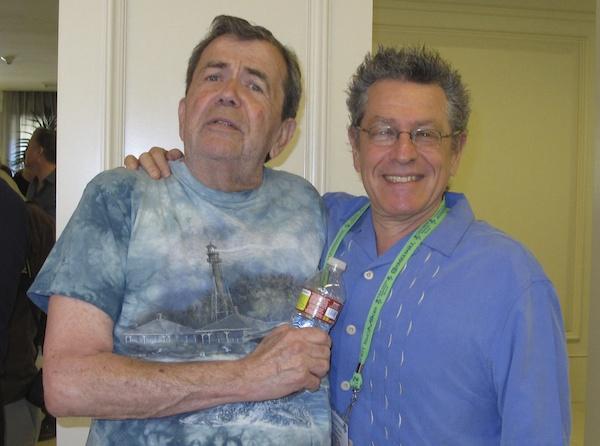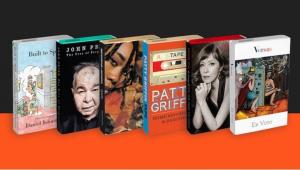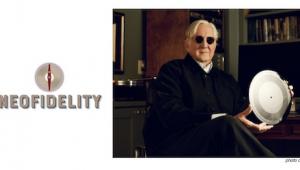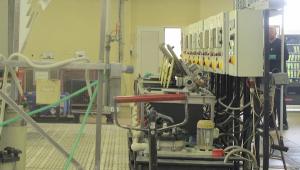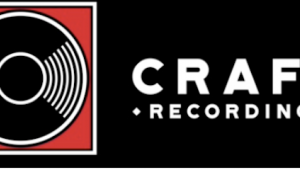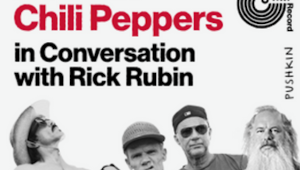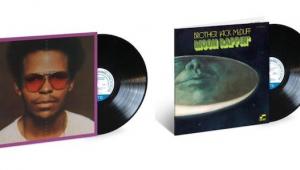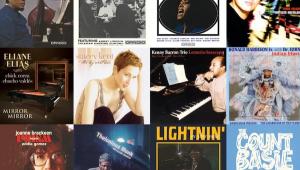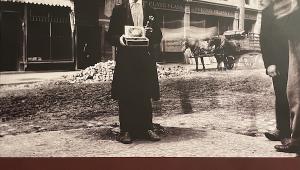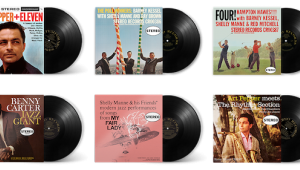RIP.
Audio Legend Harry Pearson Passes Away
Forgive me for making this obit a very personal remembrance. I first encountered Mr. Pearson in print when I read my first copy of TAS in the early 1970s at a friend's New York City apartment. At the time I'd lost all interest in audio. I read Stereo Review, High Fidelity and Audio and like many had been dragged down into the world of measurement "perfection" and so slowly over time I'd replaced a rocking tube-based system with some very poor sounding but well measuring solid state gear of that time. I still loved music of course, but listened with less passion than I had in the late '60s as the sound receded into the background. The loss of interest was so gradual, at the time I didn't take notice, nor did I realize how far down my system's sound had sunk.
Walking into my friend's home I was confronted by what looked like large white room dividers. They were Magnapan Tympani 1C speakers. The rest of the system as I recall it consisted of a Kenwood KD-500 turntable, Sonus cartridge, Infinity Black Widow tonearm and Audio Research SP3A preamplifier and D120 amplifier.
I had never heard of any of these brands. They were not even mentioned in those other magazines. I felt cheated. I felt I'd been had. Taken for a ride. This was a new and very expensive world but when for the very first time I sat down to listen my world literally changed forever.
This was a system recommended by Harry Pearson in his magazine (arguably among the first "Zines") The Absolute Sound, which my friend plopped into my lap. Pearson was a former environmental reporter for Long Island's Newsday newspaper. The magazine was quarterly, Reader's Digest sized and print heavy. At the time it did not accept advertising. The cover art by ROBBII was dark, dense and the antithesis of what magazine covers were/are supposed to look like but they were works of art, visual puns and instant classics. I didn't read it because I was too overwhelmed by what I heard. I'd never before heard anything like it: so expansive so "real" sounding and so musically believable.
I ordered a subscription and immediately fell under the spell of Pearson's eloquent writing and the almost mythical goings on at his Victorian home in Sea Cliff, L.I., N.Y. There were the listening rooms that he would describe in misty detail. There were the writers he had assembled and the manufacturers he venerated in print, many of whom also went on to become legendary. I'd read about Pearson's famous annual "friendship parties" where the young industry's luminaries would gather to celebrate their success and pay tribute to "HP" who almost single-handedly (along with Stereophile's founder J. Gordon Holt) re-invented a moribund business that had become mass market, mundane and culturally irrelevant.
It may be difficult for some today to understand how one person with almost zero technical skills or understanding (Harry never did set up his own turntable) could so transform and/or invent a business segment but there's little doubt that he did just that using the power of the written word, a sophisticated esthetic and a world-view and descriptive language that he can rightly claim to have almost single-handedly invented.
Pearson and crew (and J. Gordon Holt too who first inspired Pearson) reviewed audio equipment based on how it sounded not on how it measured on the test bench. At the time that was revolutionary. Yes, the language could be dense and jargon-filled but Pearson probably modeled his invention after the then fairly obscure and lofty world of wine criticism, which today has easily surpassed audio in terms of dense and silly descriptors: wine can taste of leather, of asphalt, with hints of B.O. but it must never taste like a grape!
Of course these small, upstart audio companies like Audio Research, Magnepan, Mark Levinson along with some of the "old school" brands like McIntosh and Marantz were founded and existed without Pearson and in some cases well before he began writing about "high end audio" but by the time he got involved, the culture of "hi-fi" so popular and cool in the "Mad Men" 1950s and early '60's and venerated in Playboy as the epitome of hip (and the best way at the time to remove a girl's dress) had faded out almost completely.
Pearson more than anyone was responsible for inventing a new market segment—a home—for both the older, then fading companies and the new ones and for putting them on the radar screens of the well-off who could afford to buy the very pricey gear. Pearson turned hi-fi from tech to a cultural phenomenon by making it always about music and about the people.
Pearson along with TAS writer Sid Marks and a few other LP experts attracted to the magazine venerated the RCA "Living Stereo" and Mercury "Living Presence" records. Like The Foo Fighter's Dave Grohl does today on his HBO TV series "Sonic Highways", Pearson elevated the status of certain recording studios and venues like Kingsway Hall as well as legendary recording engineers like Kenneth Wilkinson, Robert Fine and Lewis Layton and producers like Jack Pfeiffer and Wilma Cozart Fine.
As Wilma Cozart-Fine's son Tom related to me in an email upon learning of HP's passing: "I can tell you for a fact that Harry's articles and commentaries about Mercury Living Presence were read by and had influence on decision makers at Polygram, and the same was true at RCA/BMG. At Polygram, the methods employed to make the Mercury CDs, and their success in the marketplace, were widely adopted throughout the company. Competitors at Sony and BMG started digging in the vaults to find real-deal master tapes and started caring about analog playback, simple signal chains and state of the art analog-to-digital conversion, raising the bar on quality for all classical CDs. I'm not saying it was just Harry, but Harry's voice was important."
Back then when a friend would call and ask what was going on I'd say "a new issue of TAS just arrived". "I'll call back tomorrow" came the knowing response. All else had to wait. Even though back then I couldn't afford any of the gear reviewed in TAS, I read it from cover to cover immersing myself in the colorful descriptions and the excitement of the reviewer describing hearing familiar music as never before.
Pearson and TAS put into focus for this listener an unclear past. He put the puzzle pieces together. Of course I grew up listening to Belafonte at Carnegie Hall and recognized its sonic greatness but I never knew why, and even as a young boy found exciting the "RCA Living Stereo" logo but reading TAS put into focus all of these experiences. I'd lost touch with that era as rock took over but rediscovered it in TAS.
I was always a big Roy Orbison fan but I didn't own any of his Monument label albums. I saw in a store The Very Best of Roy Orbison and bought a copy in "stereo" figuring it would be electronically reprocessed junk. When I played it, the sound was astonishing. I later read in TAS about engineer Bill Porter and another piece was fit in the puzzle.
Yes, HP could be very frustrating. Sometimes Harry would start a review and end it in mid-review with a "more next issue" ending and that "more" would never come, or a promised review would never appear in print or after anointing a product as "the best" (which would cause the faithful to run out and buy it) an issue or two later he'd reconsider and rescind his recommendation by pointing out a certain "fatal flaw". It was all part of the game and most readers loved playing it. But not all. Pearson would publish the nastiest "letters to the editor" and then, incredibly, produce an even nastier response! He was having none of that "the customer is always nice" stuff. Sometimes, as I recall it, he'd cancel a subscription and refund the reader's money.
In 1980s I was doing some writing for the Los Angeles music publication Music Connection edited by my friend Bud Scoppa. I'd followed the introduction of digital recording first heard on vinyl and even though I'd been primed by Stereo Review and the other mainstream magazines to love the wider dynamic range, the absence of tape hiss and scrape flutter, I found the sound of Ry Cooder's Bop 'til You Drop literally disorienting and nauseating. From day one TAS was on the case covering the promise and the hugely disappointing sonics. I heard the same things and began agitating in Music Connection. At the same time, recorded sound regardless of technology was taking a huge hit probably in great part because of a rampant recording studio cocaine epidemic. Sound got hard, brittle, wiry and edgy like a good coke high.
I wrote for Music Connection a piece called "We'll Get it Wrong in the Mix" and when it was completed I realized what I'd written would not have been possible without my TAS readership. I was in many ways parroting what I'd read in TAS but what I'd read in TAS was a reflection of what I'd come to experience.
Around the same time that story was published the latest issue of TAS included a note from Harry Pearson looking for a new pop music editor. I Xeroxed a copy of that piece and mailed it off to Sea Cliff.
That proved to be another life-changer for me. I got a call from someone on the TAS staff. HP loved my piece (how could he not? It mirrored everything I'd absorbed from a decade's worth of reading TAS!) and would I come to Sea Cliff and meet with him.
"Yes!" I said, of course, and in the Spring or early summer of 1986 I made my pilgrimage to Sea Cliff, heart pounding as I ascended the wooden porch steps. You have no idea what that felt like after more than a decade of reading about and imagining the Sea Cliff saga comings and goings. Now I'd meet the legendary HP, the image of whom, at the time, it must be remembered, never appeared in print! I had no idea what he looked like. Today that kind of tight control seems inconceivable but back then it was possible. Once he allowed ROBBII to paint a full length HP portrait but only from behind. It was almost shocking.
I'd previously met many famous people. Back when I was on the radio one night I talked up the then fairly obscure Peter Frampton (then with his band Camel) and he was in Boston and happened to hear me. He came up to the studio. I'd met Paul Rodgers, Ray Davies, and later while working on "Animalympics" and "TRON", Gilda Radner, Billy Crystal, Harry Shearer, Graham Gouldman, Jeff Bridges, Wendy Carlos, etc.—not that most would ever remember meeting me—and you realize that "people are people", though there are many special ones whose charisma is unmistakable.
But I have to say, having by then met and worked with some famous people, when HP's door opened I was more flustered than ever before. I'd read this guy's writing and I literally worshipped his magazine, but I had no idea what he looked like or really, who he was beyond the mythical in-print character he'd so carefully crafted.
I shook hands with Harry Pearson and was immediately struck by two visceral emotions: on the one hand he had a gruff, undeniably charismatic and commanding presence and a deep, from the bottom of the diaphragm voice that was authoritative and in some ways intimidating, but on the other I felt from him an incredible sadness. I felt as if he was thinking that somehow, meeting him would be a disappointment for me. I could almost hear him thinking to himself "Okay, now he's met me and he's disappointed so let's move on to business." I felt that he felt he was like "The Great Oz" and I was Dorothy peering behind the curtain. An apt analogy as it turns out.
Since I was expecting Harry Pearson to be a human being and not a mythical character, other than that odd sensation of feeling his feeling my disappointment with him, I was not at all disappointed—though I was taken aback by the size of the mythical listening room in which he had the giant Infinity IRS loudspeakers and Goldmund Reference turntable. The room was barely large enough to contain the speakers! You sat but a few feet from these enormous monoliths. How could this sound any good? But as soon as he put on a record I heard good that was way gooder than anything I'd ever before heard and those four giant columns completely disappeared leaving a holographic three dimensional picture the likes of which I'd never before heard.
Ironically I now have a similar circumstance: giant Wilson XLFs shoehorned into an impossibly small space but I get similar results here as every skeptic who's visited will attest.
Harry Pearson could be a most charming, warm and giving person as he was to me that afternoon. He had only wonderful things to say about the piece I'd submitted. He autographed the then current TAS "To Michael with great respect, HP" and he offered me the pop music editorship, which came with a yearly "stipend" that could hardly be called a "salary" but no matter, I had other income sources and it was a dream come true (okay maybe I didn't dream large enough) to imagine soon seeing my name among the staff list that then included John Nork, Robert E. Greene, Jack English, David Wilson (that David Wilson), John W. Cooledge as well as record reviewing celebrities (in my world then) including Ed Mendelson, the aforementioned Sid Marks, Robert J. Reina, Fred Kaplan, Frank Doris, Arthur B. LIntgen, Enid Lumley and Martin Colloms. These were important names to me. I hung on their every word and in some cases still do.
I moved back east from California (something I'd been planning to do anyway) and began my pop music editorship at The Absolute Sound. I was in!
Harry first assigned me to interview the legendary recording engineer Bill Porter. For that I flew to Nashville and boy was it fun meeting Bill and hearing his stories about Elvis, Roy and the others he'd recorded.
The pop music editorship was enjoyable, I got to interview some musicians and a few industry people. At the time I owned a PS Audio preamplifier and was assigned to interview PS Audio's Paul McGowan. The interview appeared in the Nov/December 1986 issue. But I wanted to be an equipment reviewer. I told this to HP and he sent over a pair of budget Seifert Research speakers to compare to my Spica TC-50s.
I had no idea what I was doing but I wrote the review. It was returned with HP's red pencil all over the place. He'd clearly spent a great deal of time with it and I was grateful. I re-wrote it again and again, each time getting it back with suggestions for improving the grammar the content and the structure. Until one version returned with no red mark-ups. I was finally ready to review audio equipment for The Absolute Sound.
When I heard this morning of HP's passing, what first came to mind was the time and effort he put in to help me become a better writer—one good enough to appear on the pages of the magazine I thought mythical even when I got close enough to see it from the inside, big, ugly metaphorical zits and all. It was that good back then and I learned so much from it and from Harry Pearson that I will forever be grateful. Wherever it is I am now, I don't think I'd be here if it was not for Harry Pearson. In fact, I'm not sure where this industry would be today, if anywhere, without Harry Pearson—and that is not death-borne hyperbole.
There are so many memories flashing by now: the time I told VPI's Harry Weisfeld at an audio show in 1988 that I was about to get married and he responded "Thank God!". I said "That's an unusual response." He said "Well, everyone in the industry assumed you'd moved east to work for TAS because you were Harry's boyfriend." I survived the fall to the floor.
I got married in October of 1988 but had to postpone my honeymoon because Harry Pearson was throwing a 15th anniversary party in Sea Cliff that week and I was scheduled to give Bill Porter a "Lifetime Achievement Award". Harry had to keep the guest list "tight" so incredibly, even though she had to endure a honeymoon delay my new bride was not invited to the gala nor were some other women. Well, my wife was having none of that. She called Harry and scorched his phone's receiver. She got her invitation and as I recall it (could be wrong), she made sure that the other uninvited women also got theirs. We ended up with a Pearson Maine Coon cat, after which and for all time he affectionately called my wife "pussy mama". Only Harry could get away with that one.
Harry was from the South and from a time when being closeted was a necessity but he was cautiously open among his friends. At one point before gay marriage was even a dream in the minds of that community Harry held an informal, not recognized by the state of New York wedding with his then partner and many in the industry, even those made uncomfortable by it, attended to show their support. I donned a blond wig and sang "The Look of Love" as Dusty Springfield. I figured given what people thought anyway, I had nothing to lose.
Another great memory of that time was attending a famous Harry Pearson friendship party. The first one I attended was yet another fantasy come true. Every year in the fall, on or around Labor Day Weekend, Harry would throw this enormous party to celebrate his friends and his friendships and the wonderful camaraderie the industry created. Upon approaching the house you could hear and see in the distance the crowd filling and spilling onto the walkway beyond the generously sized wrap-around porch. A Canadian flag fluttered against the golden late summer sky high atop his Victorian home's turret. It was audio Camelot. The closer you got to the porch the more familiar the faces.
Everyone who was anyone in the audio industry and beyond was there. They flew in from around the world to pay homage to Harry Pearson, without whom it could easily be argued, many of them would not be in this wonderful business. I was an unknown at the time so spent most of the party eating the outstanding catered food (Harry was a gourmet), drinking the heavily alcoholic blender drinks and gawking at the audio celebrities wherever you looked. What a time!
Here's the sad part of the story that really needs to be included in any honest remembrance: not that many years later, the party had moved on. The friendship party attracted but a few friends—literally a handful. I remember being there with Frank Doris, a few other loyal Harry supporters and staff and that was all. The porch was empty. The industry had lost patience with some of Harry's less attractive, some would say abusive behavior that eventually led to his tragic downfall.
He had a large garage full of unreviewed equipment that was never returned. Or equipment would be returned having been seriously damaged by his cats. I was at the house more than once when Harry couldn't be bothered coming down from the home's upper level to greet manufacturers who sometimes traveled from overseas to bring and set up equipment for review.
I remember going upstairs and pleading with him to just come downstairs and say "hello" but for reasons known only to him he wouldn't, though in the evening he'd be happy to be taken out by that same manufacturer for an expensive meal where he'd order embarrassingly expensive wine regardless of the manufacturer's ability to afford it.
The once flush magazine's finances became dire over time as revenue dried up and Harry continued to feel entitled to live large and lavish while those in his employ were late getting paid. Had he run the magazine more like a business and less like a personal fiefdom perhaps he too could have "cashed out" like Stereophile's Larry Archibald did at the height of the magazine buying boom. Unfortunately, despite efforts by loyalists to tighten the magazine's lax business practices, conditions got worse. Despite fierce loyalty to the brand that once got me barred from a CES Stereophile party and a stern (and deserved) dressing down from Larry Archibald, I quit The Absolute Sound.
It was surreal. I'd devoted myself to the magazine and to Harry Pearson's vision, in which I firmly believed and I was left with no choice but to leave and hope something else would come along. Some people think Harry Pearson and I were "enemies" but nothing could be further from the truth. He believed in me and gave me my start in this business and he taught me how to write an equipment review. How many young writers today are given such careful mentoring? Judging by much of the slop found in print and especially online—the fawning publicity pieces posing as objective, critical reviews—I'd say a few, but not that many.
So a great man died last night. Some of you younger readers who have encountered online some of his later writing may have trouble understanding his greatness but if you go back and read his earlier writing which was fearless and brilliant, you'll understand.
Harry Pearson deserved better in his later years. The pieces of his magazine were picked up by others who kept the name and little else. He wrote for the new TAS but his heart was never really in it and he didn't feel respected, valued or particularly well-treated. He was eventually "fired", though he still had a large, loyal following particularly in Asia where I'm sure news of his death will shake many.
For some time friends had been encouraging him to start an online by subscription only website that would generate a decent income for him. I know for a fact there were offers to build the site for him gratis but he declined. I don't think he was interested in doing the hard work required by a website presence, especially one funded by paid subscribers.
Eventually he did start a site called 'HP Soundings" but what he did write was a shallow shell of what he was once capable of producing. He was going through the motions. Much of what was presented on the site was written by Joey Weiss who was as loyal as anyone ever was to Harry Pearson and I'm sure HP valued Joey's loyalty and friendship.
At least, through the assistance of friends he found a way to remain in his beloved Sea Cliff Victorian, where he was found last night. To be brutally honest, I think it is fair to say that just as Harry Pearson in his younger days was singularly responsible for creating his own greatness, he was also singularly responsible for his tragic downfall. He was not a victim of circumstance.
While for an obit ending that may sound harsh, I think Harry Pearson would be the first to agree and approve. Beyond the mythical man he cultivated in print the man I knew was above all else a realist. Our first encounter told me so.
Harry Pearson could be charming one moment and irascible the next. He had a temper and he did not suffer fools easily. He was a wonderful dinner companion and boy did he have stories (though I can't count on 10 hands how many times he stood up my wife and I after making dinner plans—in that we were not alone). Many great writers in other fields befriended him. His passion for audio was contagious. You might enjoy this high performance audio magazine story written in 1990 by the great film critic David Denby who upon meeting him, fell under Harry's spell.
I didn't see him all that much over the past few years but I will miss him. We all will. Even those of you who never knew or heard of him.
- Log in or register to post comments



I know a lot of people didn't like him, but he and his publication was what got me not only into this hobby, but into the high-end business.
I had the pleasure of meeting and speaking with him several times early on in my career and pursuit of the elusive "absolute sound". He always took the time to answer my questions and taught me about music and how to listen.
He will be missed.
R.I.P. Harry...you were one of a kind.

Shaken to my core upon hearing this news earlier today. I was an early 1980's TAS reader onward and, though I no longer have those wonderful text packed copies of the original magazine, everything I read remains firmly in memory. Harry taught me how to listen and, for that, I'll be eternally grateful.
I recall how deftly HP protected his image, and rightfully so with all of that expensive equipment at his fingertips. It wasn't until 4-5 years ago I saw my first photo of HP. So, today, when I received an email from The High Fidelity Report this morning and saw a photo of hP, I feared my first thought, hoping it would not be found true. Alas, a great man has fallen - a man who certainly changed my life. Thank you HP.

Thank you Michael for an excellent article. Heck, because of Harry Pearson and TAS, I have been following you and your writings throughout the years.

In his passion for music and music reproduction, and his beloved TAS, and his ability to polish a phrase - Mr Harry Pearson touched my life.
Like many, I started reading Mr Pearson in that phase of my life when - even if I gave it a thought - I just knew I would live forever. That time in our lives when the sun never sets. When the deadlines are from without, not from within. When LP records ruled the first time.
It turns out life is a little more nuanced than that. Who would have thought...
"I have seen the moment of my greatness flicker,
And I have seen the eternal Footman hold my coat, and snicker
And in short, I was afraid."
It is fitting that I should read of the great man's transition here. With thanks for a most heartfelt piece, Mr Fremer.
Philip S
Melbourne, Australia

This kind of writing keeps me coming back!!
Always wondered what led to HP's downfall. Thanks for all the insightful information. I, too, would get frustrated with HP's penchant for ending a review midstream and subsequently never finishing it.

Thanks so much for this. A truly heartfelt remembrance you've written here.

Hi Michael,
I've always enjoyed your writing and consider you one of the best in this field. Now, you've outdone yourself. So much of what you've written had me nodding "been there with Harry", from the first exposure to the man and his system, the beautiful house, dinners together, friendship parties, etc. etc.
What you've written resonated not only memory-wise but heart-wise. The ups as well as the downs. In all, audio has lost one of the great ones. Thank you for a fabulous piece that does great honor to HP.
Best regards,
Barry
www.barrydiamentaudio.com

Sounds like HP ultimately came to reap what he sowed by stringing along readers, equipment suppliers and even contributing writers. While a positive or a negative review could conceivably make or break the fortunes of a given company, the heavy lifting in the industry was still done by the component designers and manufacturers. A critic skates on thin ice if he starts viewing his own output as being on a par with that of those he critiques.

Michael, thank you for writing your thoughts for us to share. My sole encounter with the late Harry Pearson was the result of my first ever RMAF. It was 2009 and Harry invited my spouse and I to visit him. It never managed to occur.
Harry, your absence will be keenly felt.

Michael, first of all, that's a lovely remembrance. Second, I have a strong suspicion that one needs to be of a certain age and remember devouring early issues to appreciate what a special moment this is. I can't begin to thank HP for the joy he brought me. When I bought my first Koetsu, my original TNT with an ET arm, my 33H's, my Radians, my Ref 1, etc., etc., etc., in essence, it was Harry, and JGH of course. How do you adequately thank someone, at a moment like this, for all of those sublime moments, hours spent with those magazines when they arrived. Obviously you were there too, that's how we first met you. I'm so grateful, that's the main thing. I assume y'all will be getting together soon to celebrate the man, bid him a fond farewell at a formal funeral, something, or somethings. Be sure to remind him that he was dearly loved and that he brought many many persons countless hours of just plain joy. That's a great mitzvah. I may be wrong about this but for this I think you just get lots of very old first growth Bordeaux. All you want. And Tympani 1-D's, driven by classic ARC gear. And he should have his Goldmund table. And Koetsus galore. And lots of glorious vinyl. He and Bill Johnson can just schmooze and drink it all in. Obviously, heaven is tubed, and only analog.

Thank you for a beautiful article MF.

Thank you, Mr. Fremer, for your moving words on the late Harry Pearson. May he rest in peace.

writing an honest and powerful tribute to a formidable and extremely influential person in this industry. I think there are quite a few of us who were utterly taken by the early issues, which opened a window to a whole new world of music listening. In the days before the Internet, and the dumbing down of the audio magazines HP (and JGH's) writing brought us products, ideas and how to think about recorded sound, and most of all, how to listen to it, in ways that were formative for many of us. I was fortunate to have grown up in a city that had a serious audio shop (Opus One in Pittsburgh) and was selling audio part time at another store. The first time I heard the ARC SP3-a-1 in a system there, it made me realize the stuff I was slinging was electronics- this stuff made music (for its time). I occassionally go back and re-read an old issue of TAS- it is erudite in a way that most modern audio and music mag/web-zines are not.
Today, some readers have a less enchanted view of HP- maybe they grew up later in the TAS life cycle, but the industry had changed and the words and thoughts of this one man were not, could not be taken as gospel. But, whatever the conclusion on a given review (I too grew frustrated with those capsules and previews, with promises of a full review that never came), HP (and JGH) gave us an approach to listening that is still relevant.
It's sad that HP was a tortured soul and his life was in turmoil. But, that's real too, and I think your tribute is all the more meaningful for it. May he rest peacefully.

In the late seventies when my brother came back from Germany with what I thought at the time was a high end system of a Pioneer receiver, an HK Rabco straight line tracking TT, and some big-assed Pioneer speakers. TAS convinced me That I could do better. Friends thought HP a pompous, arrogant megalomaniac but I found him, and JGH, to be a breath of the fresh air and always looked forward to the next issue, though one could never know quite when it would appear in your mailbox. I was disappointed when he left the modern TAS, having looked forward to his rare contributions to his magazine. I'll miss reading his reviews of gear and especially of the music.

"We are unable to post your comment because you have been blocked by The Absolute Sound."
I feel compelled to share this with you; I tried to post twice; the first time it went up and one hour later it was taken down; when I tried to post it again I was blocked. Below is what I wrote to the staff of the Absolute Sound after being blocked, twice.
I have been a subscriber since Issue Number 8. I attempted to post below Mr. Valin’s article and received:
"We are unable to post your comment because you have been blocked by The Absolute Sound."
It is appalling and unconscionable that I am not allowed to post this in light of Mr. Pearson’s passing; he personally replied to a letter to the Editor that I wrote and encouraged me to write more.
"It no longer seems to adhere to the principles for which I founded it: Namely, to promote music as the goal of all audio equipment." - From Why I Quit The Absolute Sound by Harry Pearson
Now we eulogize Mr. Pearson when he was (contrary to what Mr. Hannon wrote in emails) essentially forced out.
"I was told I would still be in complete editorial control. But I was not. I had been replaced by those who had turned my magazine into something I would not subscribe to. I was still aboard, as a figurehead,an icon, but little more."
Personally I feel that Mr. Pearson died of a broken heart and I am in no way
attempting to be or sound poetical.
I feel that after he left The Absolute Sound it broke his heart and then he
left this world.
I had written to Mr. Hannon because I noticed that Mr. Pearson’s name was
no longer on the masthead. I asked why was that the case; I felt it was so
disrespectful. Even if Mr. Pearson was no longer there his name should have
in my opinion still appeared as the Founder. I asked why did Mr. Pearson
leave and Mr. Hannon wrote back claiming that he did not know why. Indeed!
And I thought if it was at Mr. Pearson’s request that his name be removed
from the masthead how painful that must have been for him, not to even want
to be associated with the magazine.
Several months later I came across the WHY I QUIT THE ABSOLUTE SOUND article
and it was very clear.
Their blocking my attempt to post something true is just further confirmation
how defensive they are over there. I am 65 years old and since Mr. Pearson
left The Absolute Sound, with a few exceptions it was and is very much the
case that the reviews are about the gear and not the gear in the service of
the music.

about the current regime at TAS. Not one bit of it redounds to their benefit.

I owe much of my obsession and the years of joy i've gotten from my nutty hobby to this man. At the age of 13, I walked into the public library and saw a copy. It wasn't like any other magazine. It had a really weird artistic cover and was a strange shape. It was early in the "zine" category. He wrote about audio, like one writes about wine, realized that audio was more a subjective discussion than it was quantitative, because the specifications were not matching the sound. Something resonated about his whole vibe with me, realized a kindred spirit and a group i belonged to, and read every word the guy has ever written since. Harry was almost always a year or two ahead of everyone else on what was "The Absolute Sound" and is the GOLD STANDARD of audio journalism.

"Leather" and "asphalt" are just ways of describing precisely the taste of fermented grape juice, based on flavor memories accumulated by one's own experiences. These descriptors may not resonate with everyone as they may not have those flavors in memory, or they may not pay enough attention to their olfactory senses to be able to distinguish these flavors from the wine matrix. It is understood that grape varietals under different terroirs and and particular yeasts and vilification conditions develop their primary (from the grape) and secondary (from fermentation) flavors. Seems to me exactly the same situation as in hifi reviews. An experienced individual tries to convey with descriptors of his own experience to a mass audience who may or may not relate to the terms used and may or may not have trained to understand the subtleties described in the first place. In wine, just like in hifi, measurements say something, but its not too important and secondary to the actual experience of the thing.

Now it's time to listen to Dusty singing The Look of Love.
Sincerely,
Jon Pearson (not related)

and he was patient and kind as he disagreed with my request for more pop music reviews and citations in his writing. But he did offer several options for me to become more familiar with classical music. We will miss you Harry.
Thanks for writing this Michael. I am sorry for your loss.
Trey

Fascinating write up. I too got one of those signed recent editions of TAS. Mine said "To Jim, with my respect, Christmas '83." He didn't give me the 'great respect' that you got. ;)

He taught you well, as is evidenced by your writings over the years. My friends and I would read over his "HP recommended recordings" as though he were the old man on the mountain imparting sacred knowledge. Now, I do the same with you. The torch is passed.

In the late 1980s, early in my quest for an absolute sound in my audio system, I spent nearly 2 years reading TAS before I purchased a single piece of gear. The words and advice were such that with the exception of a single pair of speakers recommended by a less than knowledgeable dealer, not by TAS, I never changed out a piece of equipment because I purchased unwisely. Thank you to HP and all whom he employed in those days for their guidance.

That has to be one of the best obits I have read, period. You presented Harry in all his glory and all his failings without being condescending or hurtful. He was a man just like anyone else, he had failings and he had wonderful accomplishments. While I first discovered high end audio through Stereophile in the early 80's, it was TAS that really got me. Yes, JGH could write well, but it was technical writing. HP (and his cast of characters) could write prose. This was not something I looked for in magazines, but when it was about audio I was hooked. To this day I am still a subscriber to TAS, but to be honest I have only scanned the magazines the last couple of years. The writing is just not the same, more akin to JGH's style than anything. One thing that to this day I cannot shake is in an early issue HP made one of his pronouncements on whether listening to music was tuly emotionally uplifting (as it was for him) or just a way to hide from your sad state of emotional well being. I tended to think the latter for myself, but thought it somewhat arrogant for him to say this. Perhaps his passing will inspire me to search out that quote, I still have all of my back issues so it's there for the finding. One last note, in a strange touch of irony, while I was reading all the comments I heard the mailman dropping off the mail. In it was the latest issue of TAS ....

I learned a lot about HP over many years as an addicted TAS reader. Your obit expanded by knowledge of the man greatly and filled in many gaps. Thank you so much for an excellent history lesson

"Mikey"...what an ABSOLUTELY beautiful and fitting tribute to a great man. It was so honest and you've captured him perfectly with your words. Tho, I am not an audiophile to the extent as all of you are, to say the least, (the furthest I'd get were letters to the editor), but having worked for TAS/TPV and having had the joy (lol) of being his next door neighbor, you've brought back SO very many memories...some of which I have in letter & photo form, that I'll post eventually. To say he was a brilliant, beautiful enigma of a man would be putting it mildly. He will be so, so missed. Thank you again for such a fitting tribute.

Although it's been 27 years since I last spoke with Harry, your unvarnished portrait of him -- his good qualities and his bad -- pretty much matches my observations and experiences from the nearly three years I worked for him.
I think it's safe to say that if Harry were a different sort of man, TAS would never have reached the heights it did, but because Harry was the man he was, it failed to become all that it could have been.
I wish now that I had knocked on his door in late 2012 when I visited Sea Cliff for the first time since I moved away 25 years earlier, if only to say "Hello" before he almost certainly would have slammed it in my face.
I learned a lot from him during that short time and I have no regrets whatsoever about my decision to go to work for him or my decision to leave when I did.
He was a character of the very best kind and will be missed more than I suspect even he would have expected, including me.
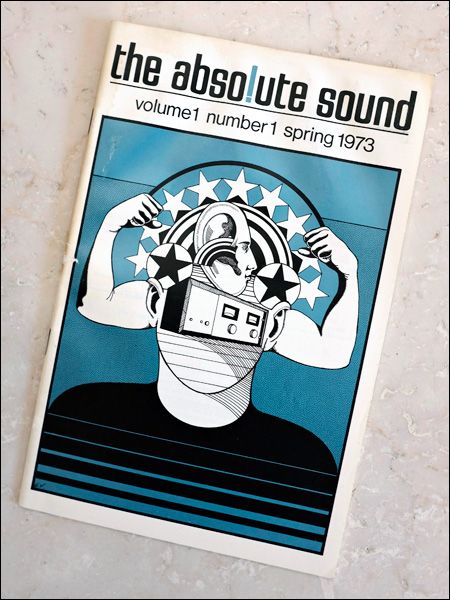

... to the charles foster kane of audio.

Harry Pearson, a private man who avoided even being photographed, is exposed in death by his so-called and self-appointed friend. Had Mr. Pearson wished to reveal his person life and private preferences, he certainly had plenty of opportunity to do so. Years and years of opportunity, and a public forum in his magazine. But, he never did. Even you were able to detect how private Mr. Pearson was about his personal life. So, what did you do in your eulogy for the great man? Babble about his personal lifestyle preference. Is it really the public's business, especially at this sensitive moment in time? Apparently, it's obsessively important to you.
Karma's a bitch. You're old and close to death. I'll be sure to eulogize you in identical fashion.

WTH?! There is NOTHING wrong with Michael telling us that Pearson was gay! That made Pearson more real to me and I thank Michael for telling us. He in no way harmed Pearson simply because he told us Pearson was gay. We can talk about a man's sexual preference without homophobia. It does not make him a worse person in any way that he was gay. Just like it does not make him any worse that he was white or half Asian or a quarter Black. It is no different than him telling us that his ancestry came from some African tribe thousands of years ago. It is NOT a shame of any kind for Pearson to be gay or for us to know about it now. Times were different back then for gay people and anyway, TAS was not a place he would divulge his sexual preference for obvious reasons; it's an audio magazine. He took a photograph with Michael as we see it here so he was NOT avoiding being photographed. So yes, it IS the public's business to know more about this wonderful man. Thank you Michael for letting us know about your friend, ESPECIALLY in this "sensitive moment in time". If not NOW, when? When Harry's death is not in the forefront of our memories anymore? NO, now is the right time. And telling Michael that he's "close to death?" That is just downright RUDE! Karma's on Michael's side, UNLIKE YOU. Continue your great work, Michael, and I wish there is a way to delete these insensitive, idiotic comments before it hits the readers. Karma is a good thing. It revolves around good energy. Only those whose life is ruled by crap and want to inject it into others do they turn karma around and say you'll have crap coming to you. I cannot be the only one offended by Neward Thelman's tackless comments.

Michael,
My shock at hearing about Harry Pearson's death was somewhat leavened by your wonderful tribute. Countering some of these writers who felt it important to keep his private life hidden, I was most touched by your accounts of his personal struggles—it helps us understand why his behavior had changed over the last few years. I should mention that Harry, being an old Southern boy, did not “advertise” being gay but he never hid it either—you may recall that in the days when he never allowed his picture to be published in TAS, he did have his lover’s picture to appear on one of the back covers of the of TAS’s early issues. (Check out that dude in the black leather jacket—Harry sure knew how to pick ‘em!)
Michael, I also have to thank you for standing by Harry during his darkest periods. It’s easy to befriend someone who is well known and well connected, but it takes a person with integrity and loyalty to support him when he feels abandoned, not only by the industry he helped create, but by his own failing body.
BTW, I wrote a small piece in the TAS obit announcement, but obviously Jonathan Valin deleted it. I am appending it here. Did you notice how few comments appear after his Pearson obit? It is because Valin is censoring the comments that HE does not care for. Here it is:
I was saddened to hear of Harry Pearson's passing. Doubly sad because he and Gordon Holt had similar end-of-life experiences, in that they both regretted selling their magazines and became bitter over the path that their "children" took, namely that both The Stereophile and The Absolute Sound largely sold out to their advertisers and (like Stereo Review before them) never met a product that they didn't like.
But I will fondly remember the good times (I wrote for TAS in the 1980s) and enjoyed listening to great music at Sea Cliff, finding a replacement copy for Harry's favorite LP, “Casino Royale”, after the disastrous fire that destroyed much of his LP collection back in 1983, and discovering some exotic restaurant to hang out with the TAS gang. (Sorry I could never master chopsticks!)
Rest in Music.
("Peace" would be too quiet for Harry!)
Ron Levine
Philadelphia

Belatedly, TAS just posted my comment (above) with a nice reply from Andy Benjamin, a TAS reviewer at the time. So Valin isn't vindictive, although Andy does agree with my opinions about where TAS has gone.

Michael,
My apologies; I don't want our bereavement for Harry Pearson to create an opportunity for controversy here, but one only needs to look at the "Recommended Components" published by Stereophile to feel as if it is just an index of the year's reviews--a majority of what gets reviewed receives a de facto recommendation.
To give The Stereophile credit, it does publish John Atkinson's lab findings along with the reviewer's comments. I find it most revealing that at least one product in each issue demonstrates very poor performance in the lab in spite of a glowing report by the reviewer. Some may say, HA! that shows that qualitative reviewing is superior to quantitative testing. But in my view it means that the reviewers are either insensitive to flaws in the product under review or are unwilling to draw attention to their defects.
Ron Levine

You write that HP was "fired" from TAS. Quoting from Jonathan Valin's article posted yesterday on the TAS website, "Let me [be] honest: I haven’t spoken to HP since the day he quit the magazine (August 31, 2012), when I called him one final time to beg him to reconsider his decision..."
Was he fired, forced out, or did he quit? As posted earlier in this thread, HP wrote an article entitled "Why I Quit The Absolute Sound."
Whichever it is, my guess is that snake, Robert Harley, had something to do with his leaving. He may have been responsible for the magazine's "current commercial success" as implied in an article on the TAS website attributed to the "TAS Staff," but, in doing so, "(TAS) no longer seem(ed) to adhere to the principles for which (HP) founded it: namely, to promote music as the goal of all audio equipment."

Notice that the "success" comments come from an article attributed to the TAS Staff. If the snake didn't write the article, I'm sure he'd edited it in his favor. That's something he's good at. E.g., he edits letters to the editor, changing their entire meaning, in order to make the writer look foolish.
I once wrote an email to their sister publication (TPV) to correct an error that appeared in their publication. I received a very nice thank you reply from HP. Classy guy.

We shall not see his like again and we will be all the poorer for it. Warts and all, HP was one of a kind and without him there would be no "us" - the High End community.

Thank you Michael for filling in much of the history of HP that many of us may not have known. Like you, I wondered for many years what HP really looked like, and I have always had questions about some of the internal workings of the Absolute Sound, many of which you answered in your HP commentary.
I remember when Julian Hirsch, of the long defunct Stereo review, died. All of the celebrities in the Audio world commended him on promoting the audio hobby through his monthly reviews. Then along comes Michael Fremer and, I forget exactly what you said but it something along the lines of setting the audio world back decades by denying the influence of things like cables and interconnects in the audio chain, and saying all well designed amplifiers sound the same....or something like that. I traded in my Dynaco Stereo 70 and PAS 3 back in the early '70s for a Acoustic Research (not Audio Research) solid state amplifier based on his (Julian Hirsch) review....and stopped listening to music for 5 years.
So honest reviews matter to those of us who do not have access to gobs of gear and I appreciate what you and HP have done for the benefit our audio hobby.
RIP Harry.
Lance Lubach

Michael, thank you for the detailed, moving tribute to Harry. And thank you for your honesty.
TAS entered my life in 1980. For decades, I would drop everything to read each issue the moment it arrived. Your stories filled important gaps in our understanding of his life and his work. And as you suggest, I'm sure he would approve. RIP.

Thank you for an outstanding piece of writing and a fitting eulogy to HP.

After 17 years, I'm moving to a new apartment and guess what I'm dragging along with me? All those early editions of TAS (and Sterophile) and many of the records from your famous list!
Thanks, Harry!

Thank you, Michael, for sharing your first-hand perspective on Harry Pearson. It's ironic, in a bittersweet way, that his passing happens within a few days of the death of Tom Magliozzi, of Car Talk fame. HP and TM have been iconic figures in my life for over thirty years. I started listening to Car Talk on WBUR, in 1977. At the time, the program was juxtaposed with Shop Talk, a program that featured interviews with some of the movers and shakers in the home audio scene, mostly but not exclusively in the Boston area. As well as information, the hosts (Peter Mitchell and Brad Meyer, both long since gone) added a tone of philosophical humor that provided a wonderful foil to the down-to-earth humor that Tom & Ray provided.
Not only that, but another person who had presence on the Boston airwaves in that era was a part-time DJ on WBCN-FM, named Michael Fremer. Of course, I also have memories of the New England Music City ads that you recorded, Michael. They were imaginative, funny and sometimes borderline off-color. Life goes on, with smiles and tears.

I, too, am in deep mourning over Tom Mazliozzi's passing. Sometimes I would take a short drive on the weekend (I normally hate driving--I'm a public trans kind of guy) just to hear Car Talk on the radio on Saturdays. After leaving TAS, it would have been a great idea if Harry Pearson had a radio show, appropriately called "Audio Talk". Harry would be a salty commentator, in contrast to Tom's sweetness. And radio allows a freer platform to say ANYTHING that's on one's mind--something that Harry would have taken to full advantage!
Ron Levine

Thank you Michael for a very touching and beautifully written and balanced tribute. His passing has saddened me especially on learning from your tribute about his difficulties in his later years. A friend introduced me to TAS & I bought the current Issue 16. I have read it since and went on many magical journeys with HP. He was and is very much part of my hi-fi DNA although from quite an early point our opinions diverged here and there. I learnt much from your tribute. RIP Harry.

I too saw that Harry Pearson's name did not appear on the masthead. I wrote Robert Harley about it and he wrote me to say that Pearson had requested that his name not appear in association with The Absolute Sound. It seemed a sad thing that Harry did not want his name to be listed with the magazine he founded.

I'm glad to hear that EBM is still alive, but puzzled by his faith in numerical analysis. One might think that as individual with that level of resources, connections and interest would have long realized that the specifications of the CD system render it mathematically incapable of reproducing music, at least as we hear it performed. This indicates that we still need persons like MF to carry the torch.

Now that is so interesting and ironic, at least to me.
As Dirty Harry once said " A man needs to know his limitations".
Even a legend must defer to vagaries of mortal ability every once and awhile.
Now I don't feel so bad when I break into a sweat when fumbling with the minutae of turntable set up.

Thank you for the remembrance, Michael. I love to read and I love music. When I first found The Absolute Sound, I realized that I had found the perfect combination of both. One year, along with a renewal notice, came an sincerely written note that lead me to believe that the magazine was having financial problems. I wrote a note back to Harry stating in effect that his was the best magazine I had ever read and easily worth much more than the subscription price. I received a very nice "thank you" in return. It was true. The quality of the information in the magazine was only exceeded by the quality of the writing. What a wonderful experience it must have been to be able to learn from him - both writing and critiquing equipment. I would sat that he will be missed, but I have been missing his writing for years now.

Can't say i was ever a big fan of the mag or the man - but I continue to be impressed by Mr. Fremmer's journalism . In the age of fanboys and trolls - his writing stands out for reporting the facts as he sees them. This obit is a nicely balanced sumation of HP's life and considerable influence on the hobby/obsession.

Thanks Mike - I appreciated the balanced overview of HP. Your full description of his personality was heartfelt, honest and accurate. As a result, your rendering made him far more human, and his passing became all the more personal for us as well.
I heard him speak a few years back at the THE show in Las Vegas, where he gave a talk on reviewing and grading audiophile components. He said it was more of an emotional and subjective experience, and boiled down to a simple three word methodology - "Believe your ears." His opinion of the Ortofon A-90 was a more recent example of this belief, and caused a bit of an uproar - but given my foray into more expensive cartidges at the time, it was a refreshingly honest viewpoint that I greatly appreciated (http://www.theabsolutesound.com/articles/hps-workshop-the-third-generati...).
I subscribe to both Stereophile and Absolute Sound, and was puzzled at the somewhat sudden and mysterious disappearance of Harry - thanks again for the back story. A tremendous loss.

I sent Harry a happy Birthday email this January, 2015, as I've done each year since moving from the East coast to Colorado 20 years ago, but the email kicked back.
I searched my emails, saw Harry's email had been hacked a few years back, and resent birthday regards to two other emails I had for Harry.
He'd usually respond, but by Jan 7, with no reply, something gripped my throat and I googled “Harry Pearson”: he was gone. Gone for weeks you loser friend.
I first read the NYTimes Obit, which left out so much, and then read these articles and all the responses and felt a bit better to see the interest.
I am no stereophile, this is a late post from a late, poor friend of a great friend, but I need to say I love Harry and can't imagine my walk through this adventure without the unconditional love of Harry in my life. I was a social friend. My only audio interactions were:
1. I put a record on his turntable and almost touched the stylist? Needle? When a guest warned me I was touching the holy grail and would fry in hell if I continued. I stopped. I dont think Harry every found out.
2. Harry agreed to play Kraftwerk's “Autobahn” on the system for me, and though I'm sure this is a travesty to many audiophiles, it was religious to hear one of my favorite early techno songs out of those towering infinity? Speakers and other components I have no idea of.
3. I mentioned “Bose” and Harry told me “Bose Sucks”. I've stuck to Bose suck.
4. I do believe Harry has been a voice in helping Digital Audio be better, but he was also a voice in saving the Arkansas River, New York Time obit writer.
A health lady Harry shared with me 30 years ago told me in confidence BACK THEN she had no idea how Harry remained alive, but I did: His will. Harry's will and endurance through many partying days was considerable, though maybe this kid was simply drinking and smoking more and he was sipping? I don't know, I'm a sober father of two teenager daughters out here in suburban Colorado now looking back on my time with the real life Great Gatsby, Harry Pearson.
I also love and remember many of you who commented on Harry's passing that I met during my days at Sea Cliff, its another tribute to Harry: the varied people who loved him, from so many walks of life and views.
Harry, I believe your still around, and reading this stuff. I'm mad you did not mention your failing health, but not surprised. You had to appear invincible to cover the fragile child we all are. Like I told my precious St. Bernard mutt Nero as he passed under the Vet's sympathy injection, I will see you soon in heaven.
Barney Moran
Boulder, CO

Thank you for what I assume is a very honest history and obit of HP. I'm late to the "party", but my income in the last few years hasn't allowed me to participate in one of my hobbies, that being goofing around with equipment and equipment reviews. One of my other hobbies is listening to music, so I've been doing more of that :-)
While it doesn't affect the sound coming out of my speakers, it's sure interesting to know more detail about music production, and HP certainly comes under the heading of interesting - even more so after your article. Fleshing out the people involved, the good and the bad, makes it seem that much more real. Thanks again.

Thanks for a fine faceted remembrance of the great HP. I am impressed that he labored so tirelessly to assure you would look good in his rag - you were very lucky indeed.
I remember David Wilson's REG's, AHC's, PHD's, JTH'S, JN's, EM's work along with many others' - and wonder if HP worked their prose over as rigorously as he did yours?
Pearson would publish the nastiest "letters to the editor" and then, incredibly, produce an even nastier response...Sometimes, as I recall it, he'd cancel a subscription and refund the reader's money.
I remember reading a number of those nasty responses and a handful of cancelation notices. Once, however, Enid Lumley (who was just as fearless as HP and unconventionally open about her unconventional observations) wrote the nastiest response to a deserving prick - for me, she gets the all-time-award.
For brevity and an interesting disdain, William F Buckley gets a related prize. The title of a collection of letters to and from his National Review is:
Cancel Your Own Goddam Subscription
This was also WFB's response to an intemperate letter demanding a cancellation.
Thanks Again
Jahn Ghalt

I am coming very late to this discussion.
Michael wrote:
"... he'd be happy to be taken out by that same manufacturer for an expensive meal where he'd order embarrassingly expensive wine regardless of the manufacturer's ability to afford it."
There is an antecedent consumer luxury goods reviewer who abused his power.
Nathan Chroman, a wine writer for the Los Angeles Times.
His downfall came at the hands of a fellow Times writer (and Pulitzer Prize winner) David Shaw, who reported on Chroman's disreputable practice of sticking high restaurant dinner bills to wine importers and distributors and brokers and wineries themselves . . . all seeking a review.
From Los Angeles Times “Main News” Section
(August 23, 1987, Page A1ff):
“Wine Writers: Squeezing the Grape for News”
(Series: First of Two Articles)
URL: http://articles.latimes.com/print/1987-08-23/news/mn-3198_1_wine-writers
By David Shaw
Times Staff Writer
-- and –-
From Los Angeles Times “Main News” Section
(August 24, 1987, Page A1ff):
“Wine Critics: Influence of Writers Can Be Heady”
(Series: Second of Two Articles)
URL: http://articles.latimes.com/print/1987-08-24/news/mn-1965_1_wine-advocate
By David Shaw
Times Staff Writer
